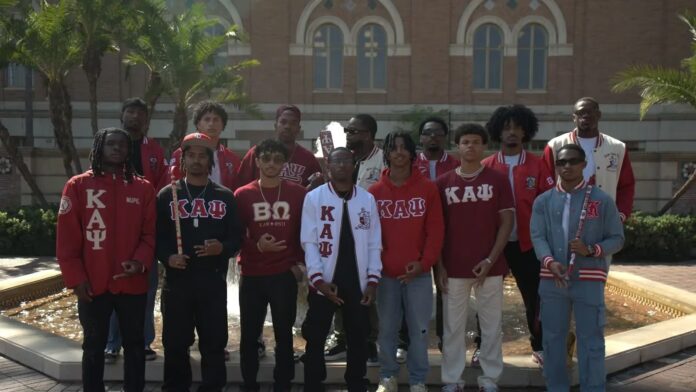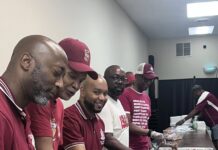
Members of the Divine Nine seek more coverage of their positive community impact
The National Pan-Hellenic Council (NPHC), or the Divine Nine, was founded at Howard University in Washington, DC on May 10, 1930. The council, originally composed of five predominantly Black fraternities and sororities, was created as an outlet for African American students during a period of racial isolation and social barriers of class on predominantly white campuses.
According to the NPHC’s website, some of the organization’s goals consist of promoting unity and economic empowerment in the Black community and taking action through educational and cultural service activities.
Four more organizations were added to the initial five, with the last addition coming in 1997. Of the nine NPHC fraternities and sororities, five are represented on USC’s campus. Media coverage regarding college Greek life typically focuses on the negative or social aspects of it. Stories of hazing incidents and large parties around the country further strengthen the stigma surrounding fraternities and sororities.
While an accurate representation of some damaging aspects of Greek life in certain parts of the country, these stories do not always paint the full picture. The Divine Nine also falls under this negative stereotype, but its coverage also contains other harsh stereotypes.
Perhaps the most jarring is the claim that Divine Nine organizations are demonic. A multitude of articles can be found making this claim regarding Black Greek life, however there are no such reports regarding predominantly white fraternities and sororities.
Divine Nine students at USC are hoping these misconceptions about Black Greek life can be overshadowed in the media by the benefits these organizations have on members and surrounding communities.
Kai De’Shon Hines is a sophomore studying international relations and global business who is a member of Kappa Alpha Psi Fraternity Inc. He reflected on what aspects of his organization were covered more in the media.
“I wish the community service aspect was covered more,” he said. “We ourselves cover it, but others only cover us strolling and our parties on social media. It is a part of our undergraduate culture, but it is not all we do or the main component.”
Hines cited the “Guide Right Youth Development Program”, the “Undergraduate Leadership Institute”, the “Kappa League” and the “Room to Read” program as just a few of the initiatives Kappa Alpha Psi Inc. participates in to give back to the Black community.
“These are all programs we hold to either improve our members’ leadership skills or children in the communities we live in,” he said. “We also raise millions each year for St. Jude’s Children Hospital.”





















